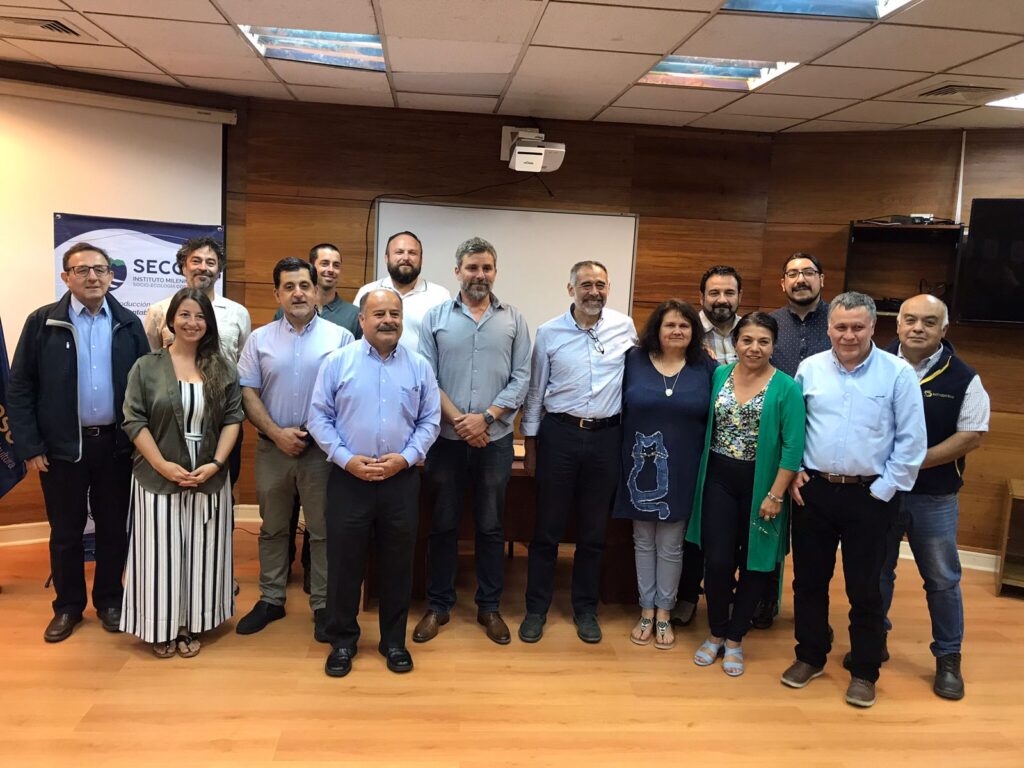
17 Nov National Fisheries and Aquaculture Service and SECOS Millennium Institute sign cooperation agreement for fisheries sustainability
The institutions agreed to work together on issues and projects aimed at the sustainability of fisheries and the reduction of illegal fishing.
In Chile, illegal fishing is a reality that affects artisanal fisheries on a daily basis, posing a threat to the conservation and sustainability of marine ecosystems by causing significant economic losses for small-scale fishing. In this context, the National Fisheries and Aquaculture Service (SERNAPESCA) and the Millennium Institute for Coastal Socio-Ecology (SECOS) share the goal of conserving and sustainably managing Chilean fisheries.
Both institutions agree that this objective is hindered by the presence of illegal fishing — that is, any undeclared or unregulated fishing activity. “We know we can’t fight illegal fishing on our own,” said Fernando Naranjo, Acting National Director of SERNAPESCA. “That’s why we are constantly seeking strategic partnerships. Just a few days ago, we signed an agreement with a leading tech NGO, we also collaborate operationally with the Sustenta Network and other public services, and academia must also be involved. So we are very pleased to formally launch this collaborative work through this agreement with SECOS,” Naranjo added.
As part of this cooperation agreement, both parties have agreed to work together on topics and projects aimed at promoting the sustainability of fisheries and reducing illegal fishing, particularly in fisheries identified as strategic under SERNAPESCA’s national enforcement plan.
“Every year we update our institutional priorities to focus on fisheries of high economic importance for the country that are either overexploited or depleted. We concentrate our efforts on these to prevent illegal activity from worsening their condition. We’re talking, for example, about common hake, southern hake, jack mackerel, common sardine, anchovy, among other resources,” stated the Acting National Director of SERNAPESCA.
For the Millennium Institute SECOS, establishing networks with institutions in the country’s fisheries governance is essential for the co-production of knowledge. “This agreement commits us to contributing scientific capacity to support SERNAPESCA in analyzing data that helps us better understand the extent of illegal fishing and ways to reduce it. The aim of this line of work is to adapt existing models, methods, and approaches for use in the Chilean context,” said Stefan Gelcich, Director of the Millennium Institute for Coastal Socio-Ecology and faculty member at the UC Faculty of Biological Sciences.
“The socio-ecological approach that SECOS can bring is important because it allows us to address this issue through collaboration. Detecting and studying illegal fishing is complex, and we need to develop diverse methods and approaches. Better understanding the processes can help improve the effectiveness of enforcement efforts,” explained Rodrigo Oyanedel, an early-career researcher at SECOS, who will be leading the implementation of the collaboration agreement.



